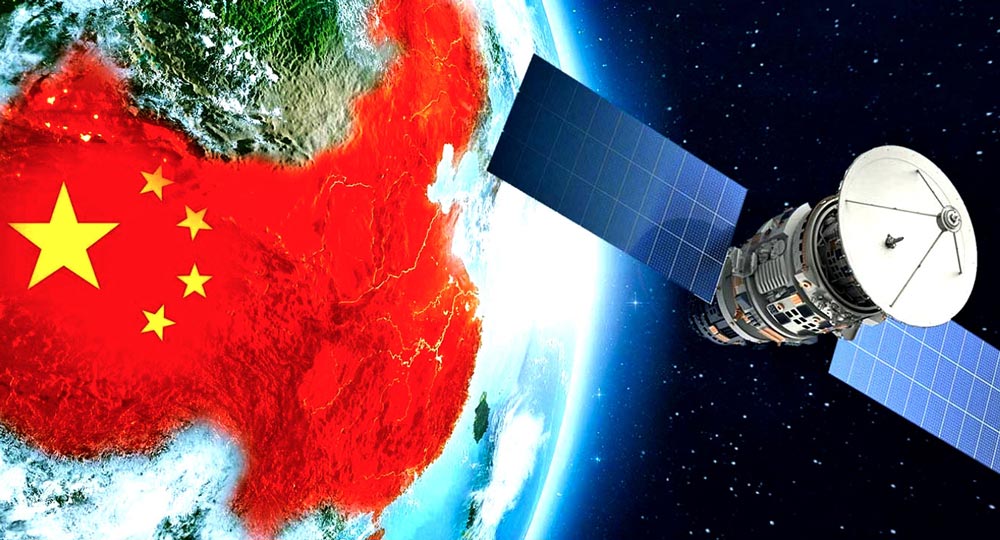China is ramping up its efforts to compete with SpaceX’s Starlink, Elon Musk’s ambitious satellite internet project. With plans to launch tens of thousands of satellites into low Earth orbit (LEO), China’s megaconstellations aim to rival the dominance of Starlink in providing global satellite internet coverage. This development is reshaping the geopolitical and technological landscape of space-based connectivity.
The Scale of the Challenge
SpaceX’s Starlink is currently the undisputed leader in satellite internet services. With nearly 7,000 operational satellites in orbit and around 5 million customers across more than 100 countries, Starlink has set a high benchmark. SpaceX also has long-term plans to expand its constellation to 42,000 satellites, enabling even broader coverage and faster speeds.
China, however, is attempting to match this scale with its own ambitious projects. The country aims to deploy about 38,000 satellites across three major LEO internet constellations: Qianfan, Guo Wang, and Honghu-3. While these projects are still in the early phases, their scale demonstrates China’s determination to catch up to and potentially surpass Starlink’s global reach.
Why Is China Entering the Satellite Internet Race?
China’s motivation to build its own satellite internet network is multifaceted, combining economic, geopolitical, and security concerns.
1. Censorship and Control
Starlink’s ability to provide uncensored internet access poses a direct challenge to China’s strict censorship policies. According to Steve Feldstein, a senior fellow at the Carnegie Endowment for International Peace, Starlink could bypass China’s internet restrictions, allowing citizens and individuals in allied countries to access uncensored content. For China, this represents a significant threat to its information control regime, prompting the need for a domestic alternative.
2. Geopolitical Influence
China sees an opportunity to offer its satellite internet services to regions underserved by Starlink, particularly in countries with close ties to Beijing. Juliana Suess, an associate at the German Institute for International and Security Affairs, notes that regions such as Russia, Afghanistan, Syria, and parts of Africa could be attractive markets for Chinese satellite internet. Many African nations, for instance, already rely on Chinese-built 4G infrastructure through companies like Huawei, and a space-based extension could deepen these relationships.
3. National Security
Satellite internet is increasingly viewed as a strategic asset in modern warfare. Starlink’s role in the Ukraine conflict has demonstrated the military advantages of satellite-based connectivity, particularly in enabling drone warfare and maintaining communication in disrupted territories. Blaine Curcio, founder of Orbital Gateway Consulting, highlights that China sees satellite constellations as essential for national security goals, ensuring resilience during conflicts where ground-based infrastructure may be compromised.
The Competitive Landscape
China isn’t the only challenger to Starlink’s dominance. Other players in the satellite internet race include:
- Eutelsat OneWeb, a European-based organization with over 630 LEO satellites in operation.
- Amazon’s Project Kuiper, which plans to deploy more than 3,000 satellites. However, the project is still in its infancy, with only two prototype satellites launched so far.
Despite these competitors, China’s focus on integrating satellite internet with its geopolitical ambitions sets it apart. Unlike Western competitors, China offers an internet model that aligns with its censorship policies, making it appealing to certain governments.
Challenges Ahead for China
While China’s plans are ambitious, achieving parity with Starlink will not be easy. The country faces several hurdles:
- Technological Development: Building and launching tens of thousands of satellites requires cutting-edge technology and significant expertise, areas where SpaceX currently excels.
- Global Market Acceptance: Chinese satellite internet services are unlikely to find traction in Western countries, including the U.S., Canada, and Western Europe, where concerns about surveillance and data privacy could deter adoption.
- Regulatory and Orbital Congestion: The deployment of massive satellite constellations raises concerns about space debris and the coordination of orbital slots, challenges that all players in the LEO race must address.
The Road Ahead
China’s satellite megaprojects are not merely about providing internet access; they represent a broader strategy to challenge Western technological hegemony and establish space-based infrastructure as a cornerstone of national security and global influence. While it remains to be seen whether China can match Starlink’s scale and speed, the competition is heating up, with significant implications for the future of global connectivity and space exploration.









